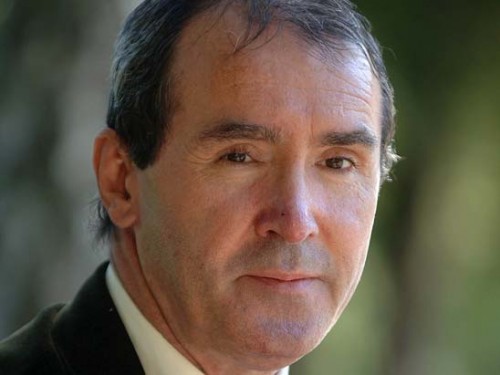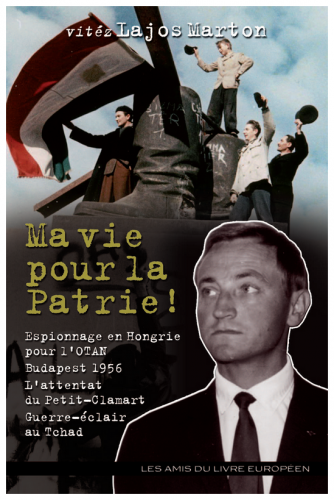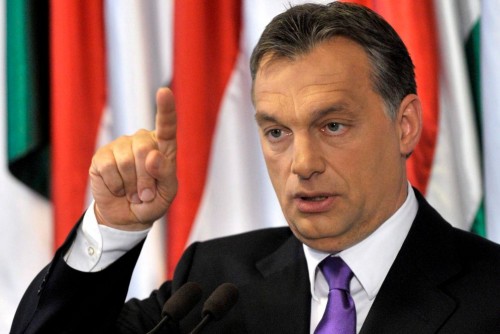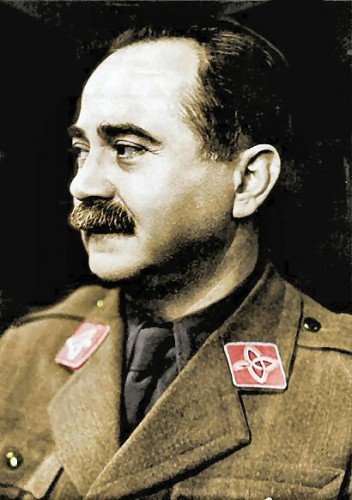
Mile Budak : itinéraire d’un réprouvé
par Christophe Dolbeau
Lorsque la Seconde Guerre mondiale s’achève, au printemps de 1945, l’épuration « anti-fasciste » qui lui succède ne se montre pas tendre envers les intellectuels qui ont fait le « mauvais choix » : les écrivains français Georges Suarez, Robert Brasillach et Paul Chack finissent au poteau d’exécution, tout comme leur collègue belge José Streel, des dizaines d’autres s’en vont croupir dans d’obscurs cachots, le philosophe italien Giovanni Gentile est abattu au coin d’une rue, tandis que le Norvégien Knut Hamsun (prix Nobel 1920) et l’Américain Ezra Pound se retrouvent bouclés pour de longues années dans des asiles psychiatriques. En Croatie où, adossés à l’Armée Rouge, les Partisans de Tito ont finalement triomphé, cette épuration s’apparente carrément à un véritable carnage dans lequel disparaît la majeure partie de l’intelligentsia (1) : les communistes veulent faire place nette. Comme le dira cyniquement Simone de Beauvoir, « certains hommes n’avaient pas leur place dans le monde qu’on tentait de bâtir » (2)… Pris dans les tourbillons de cette époque où « les règles élémentaires du droit furent littéralement foulées aux pieds » (3), l’écrivain Mile Budak fait figure de victime emblématique : romancier, poète, mais aussi avocat, ministre, ambassadeur et surtout dignitaire oustachi, il polarise toutes les haines des vainqueurs. Jugé en quelques heures par un trio de reîtres mal dégrossis, exécuté à la va-vite la nuit suivante et enseveli en catimini, il sera ensuite effacé des anthologies et exclu de la littérature nationale au prétexte de turpitudes imaginaires sur lesquelles il n’est pas inutile de revenir aujourd’hui.
Premiers pas
Originaire de la province de Lika, c’est le 30 août 1889, six jours après la mort de son père, que Mile Budak vient au monde à Sveti Rok, au sein d’une famille qui compte déjà huit enfants. D’abord élève de l’école primaire du village, il intègre ensuite le lycée de Sarajevo où il obtient, au printemps de 1910, son baccalauréat. Issu d’un milieu très modeste, le jeune homme a pu effectuer sa scolarité grâce à une bourse de l’institut catholique Napredak ; il a également travaillé ici et là comme commis aux écritures. Bachelier, il rejoint dès lors Zagreb et s’inscrit à l’université en vue d’y poursuivre des études d’histoire et de géographie, une option qu’il abandonne toutefois assez rapidement pour s’orienter finalement vers le droit.
Dès ses années de lycée, Mile Budak milite au sein des jeunesses patriotiques croates et donne ses premiers articles aux revues Pobratim, Behar et Mlada Hrvatska. À Zagreb, cet engagement peut s’exprimer plus librement (4) et dès la rentrée de 1910, le jeune homme adhère officiellement à l’association des étudiants nationalistes. Élu secrétaire du groupe, il en compose l’hymne et collabore désormais assidûment au journal Mlada Hrvatska, ainsi qu’à diverses publications – Hrvatsko Pravo, Hrvatska Prosvjeta, Savremenik – proches du Parti du Droit. Si dans ses articles, Mile Budak réclame fermement la fin de la tutelle que Vienne et Budapest exercent sur sa patrie, il aborde aussi souvent la question serbe qui est au cœur de nombreux débats en Croatie ; en disciple d’Ante Starčević (5), il souligne notamment que beaucoup de ceux qui se disent serbes, en Croatie et en Bosnie-Herzégovine, ne le sont pas vraiment, il distingue entre vrais Serbes et Zinzares (6), soutient que beaucoup de soi-disant Serbes sont en fait de souche croate (7) et affirme avec force qu’en Croatie, il ne peut y avoir de pouvoir légitime que celui qui émane du peuple croate. Déjà bien ancré dans sa personnalité, ce sourcilleux nationalisme le conduit à fréquenter les éléments les plus radicaux, ce qui lui vaudra quelques démêlés avec la police, au lendemain des attentats qui visent, en 1912, le Ban Slavko Cuvaj.
Parallèlement à ses études, au journalisme et au militantisme politique, la vie de Mile Budak est bien remplie puisque le jeune homme trouve encore le temps d’exercer un petit emploi de gratte-papier au Bureau Municipal des Statistiques et d’effectuer une préparation militaire. Au plan privé, sa situation évolue également puisqu’il se marie et que son épouse, Ivka, ne tarde pas à lui donner un premier enfant (20 juillet 1914).
De l’uniforme à la toge d’avocat
Les événements ne laissent que quelques jours à Mile Budak pour fêter la naissance de son fils Zvonimir (8) car la guerre éclate (4 août 1914) et le jeune aspirant est appelé à rejoindre son régiment. Engagé sur le front de Mačva, il s’y bat quelques semaines avant d’être sérieusement blessé et d’aboutir à l’hôpital militaire de Valjevo où les Serbes le font prisonnier (8 décembre 1914). Sa captivité va durer quasiment cinq ans. Elle l’amènera à traverser à pied la Macédoine et l’Albanie aux côtés de ses geôliers puis à séjourner dans les camps italiens de Muro Lucano et d’Asinara. Ce n’est que le 18 août 1919, huit mois après la cessation des hostilités qu’il débarque enfin à Gruž, dans un pays qui s’appelle désormais le « Royaume des Serbes, Croates et Slovènes » : il témoignera plus tard de ses tribulations de prisonnier de guerre dans Ratno roblje (Otages de guerre), un livre qui paraîtra en 1941.
Sitôt de retour à Zagreb, Mile Budak entreprend de terminer ses études et le 31 juillet 1920, il soutient avec succès sa thèse de doctorat. À 31 ans, il peut désormais envisager d’avoir un emploi décent et en rapport avec ses ambitions. Avocat stagiaire au cabinet du Dr Ante Pavelić, il collabore également avec ce dernier au sein du Parti du Droit, collabore aux publications (Hrvatski Misao, Pravaš, Hrvatsko Pravo) qui soutiennent cette formation et participe aussi aux activités du Hrvatski Sokol (9). Au terme de sa période probatoire (1923), il accède au plein statut d’avocat, ouvre son propre cabinet et se fait vite connaître en plaidant quelques affaires politiques retentissantes : en mai 1925, il défend par exemple son ami de jeunesse Vladimir Ćopić (10), un activiste communiste, pour lequel il a déjà témoigné en 1922, et quatre ans plus tard, il plaide pour Josip Šunić, un militant du Parti Paysan que l’on accuse d’avoir occis le journaliste serbe Vlada Ristović. Élu au conseil municipal de la capitale (4 septembre 1927), Mile Budak y siège durant deux ans, jusqu’à l’instauration de la dictature – à compter de janvier 1929, les conseillers sont en effet nommés par le roi, ce que refusent Budak et ses collègues du Parti Paysan.
Avec l’instauration de la dictature (6 janvier 1929), l’action politique légale devient impossible. Ante Pavelić quitte donc le pays, non sans avoir auparavant fondé l’Oustacha, mouvement révolutionnaire et clandestin qui se propose de libérer la Croatie de l’oppression étrangère et de proclamer l’indépendance. Moins exposé que son confrère, Mile Budak reste à Zagreb où les patriotes se lancent, sous la houlette de Stipe Javor, dans l’action subversive et la résistance armée. En mars, le journaliste pro-serbe Tony Schlegel est abattu par de jeunes nationalistes, ce qui entraîne une vague d’arrestations et la fuite à l’étranger de plusieurs militants (11) ; le 29 et le 31 août, Mile Budak et Stipe Javor sont eux aussi arrêtés. Accusé d’être le cerveau de la subversion, Stipe Javor se verra bientôt condamné à 20 ans de détention (12). Pour sa part, Mile Budak, sur lequel ne pèse aucune charge précise, passe sept mois derrière les barreaux avant d’être remis en liberté sans qu’aucune procédure ne soit ouverte à son encontre !
N’étant pas poursuivi, Mile Budak peut prendre part à la défense des patriotes et lors du procès que l’État yougoslave intente à Stipe Javor, Matija Soldin, Marko Hranilović (13) et une vingtaine de leurs camarades, il figure d’ailleurs parmi les avocats des inculpés, au côté du Dr Vladko Maček (14) avec lequel il se lie d’amitié. Faute d’avoir pu légalement le réduire au silence, le pouvoir royal décide alors de le faire taire définitivement et par des moyens plus expéditifs. Le 7 juin 1932, Mile Budak est assailli dans une rue par deux ou trois individus qui le blessent d’un coup de feu et l’assomment à coups de gourdin, l’expédiant pour trente-huit jours à l’hôpital ! L’intention était clairement de le tuer et il n’en réchappe que grâce à l’intervention rapide de quelques passants qui devront eux-mêmes faire face à mille tracasseries. Identifiés comme des agents de la police secrète, ses agresseurs n’écoperont que de trois ans de prison, ce qui soulève, à Zagreb, une tempête d’indignation : une pétition de soutien à Mile Budak réunit en quelques jours 209 signatures (dont celles des archevêques Bauer et Šarić et celles des communistes August Cesarec et Božidar Adžija), tandis que des parlementaires interpellent violemment le ministre de l’Intérieur.
Malgré ce climat délétère, Mile Budak participe, en novembre 1932, aux discussions qui préludent à la signature de ce que l’on appellera la « Déclaration de Zagreb » (Zagrebačka Punktacija), un document dans lequel les principales forces politiques croates (Parti Paysan, Parti du Droit, Parti Démocrate Serbe) dénoncent ensemble l’hégémonisme serbe et réclament l’instauration du fédéralisme. À peine remis de l’attentat qu’il a subi, Budak se sent encore menacé et il envisage désormais d’émigrer afin de mettre quelque distance entre sa famille, lui-même et les hommes de main du régime. L’arrestation de Vladko Maček (31 janvier 1933) achève de le convaincre et après avoir cédé les rênes de ce qu’il reste du Parti du Droit à son confrère Lovro Sušić (15), il quitte le royaume le 2 février 1933. Officiellement, il part en cure à Karlsbad (Karlovy Vary) avec son épouse et laisse ses filles (16) à Zagreb, aux bons soins de son ami Ivan Werner (17) ; elles rejoindront discrètement leurs parents quelques semaines plus tard.
L’émigration
Après une brève escale à Graz, Mile Budak et les siens gagnent ensuite Modène où ils sont hébergés par la famille Pavelić, puis Turin où ils vont demeurer jusqu’en décembre 1933. C’est à cette époque que Budak adhère formellement à l’Oustacha dont il prête le serment. C’est également durant ce court séjour qu’il rédige une petite brochure, Le peuple croate et son combat pour un État libre et indépendant (Hrvatski narod u borbi za samostalnu i nezavisnu hrvatsku državu), dont il confie le manuscrit au Père Stipanovic (18). Venu des Etats-Unis pour remettre un mémorandum à la Société des Nations, cet ecclésiastique invite Budak à l’accompagner au Vatican (24 octobre 1933) où ils rencontrent tous deux Sa Sainteté Pie XI lors d’une audience privée, avant d’être reçus à la Secrétairerie d’État.
Outre la brochure que nous avons mentionnée, Mile Budak commence également à collaborer à la presse oustachie : sa première contribution, signée Velebitski, est un poème à la gloire des combattants du mouvement qui paraît aux alentours de Pâques dans Grič et Ustaša. « L’ennemi piétine ta mère », s’écrie l’auteur, « Il crache sur les autels et souille les tombes des tiens » mais la Croatie attend impatiemment la venue de l’Oustacha (19). Associé à la rédaction de l’almanach « de l’État Indépendant Croate » qui réunit les signatures des intellectuels émigrés (20), il y publie ensuite « quelques réflexions » (21) qui lui permettent d’exprimer son attachement à la terre natale et aux paysans, et d’exposer sa vision essentiellement agrarienne du futur État croate. C’est à la même époque, enfin, qu’il compose pour les militants une marche belliqueuse où il chante « le héros Ante » qui s’élève comme un aigle sauvage des sommets du Velebit pour « chasser le diable au-delà de la Drina »… [Crûment intitulée « Bježte, psine ! » ou « Fichez-le-camp, chiens ! », cette marche serbophobe sera souvent reprochée à Mile Budak. Il faut toutefois la replacer dans le contexte d’extrême tension des années 1930. Au moment où Budak écrit ces paroles, il y a des attentats, des tortures, des pendaisons, une répression terrible et les passions sont exacerbées. Cette marche traduit peut-être de façon un peu radicale l’exaspération des patriotes croates mais elle reste néanmoins sensiblement moins acrimonieuse que La Marseillaise…].
À la fin de l’année 1933, Mile Budak et son épouse partent pour Berlin où l’écrivain doit superviser l’édition du bimensuel Nezavisna Hrvatska Država et de l’almanach du même nom, deux publications que dirige Branimir Jelić (22). À cette époque, le gouvernement allemand ne veut plus que ces titres soient imprimés à Berlin : ils le seront donc à Dantzig avant que l’imprimerie italienne de l’Oustacha n’en reprenne l’édition. La cohabitation à la tête d’une même entreprise éditoriale de deux personnalités aussi fortes que celles de Mile Budak et Branimir Jelić se révèle vite orageuse et une brouille profonde opposera durablement les deux hommes. Dans l’immédiat, ce différend est mis entre parenthèses car Jelić se rend en Amérique où Pavelić l’a chargé d’implanter l’Oustacha (23). De son côté, Budak ne reste pas non plus en Allemagne car au début du mois d’octobre 1934, le Poglavnik l’appelle d’urgence en Italie. Entre les deux hommes, Pavelić a, semble-t-il, fait son choix puisqu’en mai 1934, il a écarté Jelić des instances dirigeantes du mouvement et promu Budak au rang supérieur de conseiller (doglavnik).
Arrivé à Bologne le 8 octobre 1934, veille de l’attentat de Marseille [dans lequel il ne joue aucun rôle], Mile Budak se rend ensuite à Turin auprès des Pavelić. Pour les émigrés croates commence alors une période difficile car d’énormes pressions s’exercent maintenant sur leurs pays d’accueil et notamment sur l’Italie. Le 17 octobre, le chef de l’Oustacha et son bras droit, Eugen Dido Kvaternik (24), sont incarcérés par les autorités fascistes qui interceptent peu après (8 novembre) Branimir Jelić qui arrive des Etats-Unis. Les camps oustachis sont fermés et la plupart de leurs occupants (plus de 500 hommes) assignés à résidence sur l’île de Lipari. Placé par Pavelić à la tête de toutes les bases de l’organisation (10 janvier 1935), Mile Budak devient dès lors le principal interlocuteur du gouvernement fasciste et le responsable en chef des internés, une position qui s’avère vite inconfortable. Contesté par de nombreux militants qui lui reprochent de se montrer trop conciliant avec les Italiens et qui contreviennent ouvertement à ses ordres, Mile Budak peine à imposer son autorité. Ces conflits internes lui vaudront des rancunes tenaces et lui laisseront un souvenir amer.
À partir de 1936, son épouse Ivka s’établit à Messine où il la rejoint en février 1937, la direction du groupe de Lipari étant désormais assurée par Eugen Dido Kvaternik ; il ne s’agit cependant que d’une étape de plus puisque trois mois plus tard, le couple déménage encore, cette fois pour Salerne. Libéré des exténuantes chamailleries de Lipari, Mile Budak peut enfin se remettre à écrire. Ponctuée par la parution successive de Pod gorom (Au pied des montagnes – 1930), Raspeće (La mise en croix – 1931), Na ponorima (Au bord des abîmes – 1932) et Opanći dida Vidurine (Les mocassins de Pépé Vidurina – 1933), sa carrière littéraire s’est brutalement interrompue lorsqu’il a pris le chemin de l’exil, et ses nombreuses obligations ultérieures ne lui ont guère laissé le temps de renouer avec la littérature. À Messine puis à Salerne, c’est donc avec ferveur qu’il reprend la plume. Dans Na vulkanima (Au bord des volcans), qui ne paraîtra qu’en 1941, il raconte tout d’abord les péripéties de sa mission aux îles Éoliennes, puis il s’attelle à ce que beaucoup de critiques considèrent comme son œuvre majeure, le roman Ognjište (L’Âtre). Dans ce livre, dont il rédige les 850 pages en 43 jours, enfermé dans une chambre d’hôtel, Mile Budak – que certains tiennent pour un émule de Dostoïevski et d’autres pour un épigone de Wladislaw Reymont – trace un tableau fidèle et vivant de la vie des paysans de sa province natale de Lika. Avec cette œuvre, il prend place, aux côtés de Jean Giono, Stijn Streuvels, Dezsö Szabó et quelques autres, parmi les grands noms de la littérature du terroir et du courant que les Allemands nomment le Blut und Boden.
Le retour
Suite à l’accord intervenu entre l’Italie et la Yougoslavie (25 mars 1937), la branche italienne de l’Oustacha est dissoute (1er avril 1937) et les émigrés se voient fermement invités à rentrer au pays. Au cours des douze mois qui suivent, un premier contingent de 161 personnes regagne d’ailleurs la Yougoslavie (25). Dans ce contexte, Mile Budak, dont l’épouse supporte de plus en plus mal les rigueurs de l’exil, commence à envisager sérieusement l’hypothèse d’un retour. Il est difficile d’établir, aujourd’hui, s’il agit en accord avec Pavelić ou de son propre chef mais le fait est qu’il rencontre à deux reprises le célèbre policier yougoslave Vladeta Miličević afin d’évoquer les conditions de son retour, et qu’il s’entretient même, sur les bords du Lac de Côme, avec le Premier ministre yougoslave Milan Stojadinović. En tout état de cause, ces discrètes négociations finissent par aboutir puisqu’au bout de cinq mois, Mile et Ivka Budak quittent Salerne pour Zagreb où ils arrivent le 6 juillet 1938, quelques semaines seulement après la sortie en librairie de Ognjište…
Pour l’homme de lettres, ces retrouvailles avec la Mère Patrie marquent un regain d’activité. Peu de temps après la publication de Ognjište paraît le roman Direktor Križanić, suivi en 1939 de Na Veliki Petak (Le Vendredi Saint) et de Rascvjetana trešnja (Le cerisier en fleurs), puis en 1940 de San o sreći (Songe de bonheur). Cette créativité littéraire n’empêche pas Mile Budak de redescendre dans l’arène politique en prenant tout d’abord la direction du nouvel hebdomadaire nationaliste Hrvatski Narod et en patronnant ensuite l’association Uzdanica. [Animé par des sympathisants de l’Oustacha, ce groupe a pour objectifs de fournir une assistance morale et financière aux victimes de la répression et de concurrencer dans toutes les communes l’appareil du Parti Paysan]. Alors que la Seconde Guerre mondiale vient d’éclater, les patriotes croates sont encore loin d’avoir gagné la partie : la Croatie a certes obtenu un semblant d’autonomie (24 août 1939) mais la répression anti-indépendantiste ne faiblit pas. Au cours de l’année 1940, le journal Hrvatski Narod est d’ailleurs suspendu, tandis que les dirigeants nationalistes sont arrêtés les uns après les autres et incarcérés au camp de Krušćica, en Bosnie centrale. Figure de proue de la contestation anti-yougoslave, Mile Budak n’est, bien sûr, pas épargné par la rafle : appréhendé le 27 février 1940, il ne sera élargi que cinq semaines plus tard, non sans avoir observé deux grèves de la faim. L’écrivain n’est pas épargné non plus par le destin puisque le 11 avril 1940, le jour même où s’achève sa détention, son épouse Ivka décède à leur domicile de Zagreb. Retrouvée noyée dans un bassin de jardin, on ne saura jamais si elle a mis fin à ses jours ou si elle a été victime d’un homicide…
Ministre de l’Instruction
Au moment où se déclenche l’offensive allemande contre la Yougoslavie (6 avril 1941), Mile Budak se trouve dans un hôpital de Zagreb où il se remet d’une opération de la vésicule biliaire (et où il échappe de peu à une nouvelle tentative d’attentat). C’est donc depuis son lit de douleur qu’il apprend, le 10 avril 1941, la proclamation par Slavko Kvaternik (26) de l’État Indépendant Croate. Même si ses problèmes de santé l’ont tenu à l’écart des événements du 10 avril et s’il n’appartient pas au noyau dur de l’Oustacha, l’écrivain demeure cependant l’un des personnages les plus en vue du mouvement et à ce titre, le Poglavnik lui offre bientôt d’entrer dans le premier gouvernement du nouvel État. Le 16 avril 1941, Mile Budak est donc nommé ministre des Cultes et de l’Instruction (27), un poste qu’il va occuper durant un peu plus de six mois.
La création du nouvel État implique la mise en place d’un nouveau système scolaire et universitaire, ce qui constitue la tâche prioritaire du nouveau ministre. Ce dernier procède à quelques promotions et mutations chez les enseignants et directeurs de lycée, il fait réaliser de nouveaux livres de lecture pour les écoles primaires et de nouveaux manuels pour les établissements secondaires. Dans le domaine universitaire, il installe une commission de réforme et supervise l’attribution des postes [contrairement aux clichés souvent répandus, le nouveau régime ne déclenche aucune chasse aux sorcières et seuls 14 ou 15 professeurs sont placés en situation de retraite]. Dans le même temps, Mile Budak ordonne (9 août 1941) la création de l’Institut d’Édition Bibliographique (HIBZ) qui aura pour mission de rédiger et de publier une encyclopédie croate ; son champ d’action dépassant le strict domaine scolaire pour s’étendre à celui de la culture en général, il s’intéresse également à la fondation (12 juillet 1941) de l’Académie Croate des Sciences et des Arts (HAZU) ainsi qu’aux travaux de l’Association des Écrivains et à l’avenir du Théâtre National. Parallèlement à ces activités qui relèvent de son ministère, il poursuit d’autre part l’édition de ses propres œuvres et notamment de Ratno roblje (Otages de guerre), Na vulkanima (Au bord des volcans) et Musinka qui paraissent durant l’année.
Globalement, ce semestre à la tête du ministère de l’Instruction est une période plutôt positive pour Mile Budak au crédit duquel il faut encore porter de discrètes interventions en faveur des écrivains Miroslav Krleža (28) et Ivo Andrić (29). La seule ombre au tableau mais elle est de taille, ce sont les quelques discours que Budak prononce au cours de l’été et dans lesquels il s’en prend maladroitement aux Serbes, ce que la propagande ennemie ne manquera pas de monter en épingle. Pour se faire une idée objective des propos du ministre, il faut bien les replacer dans le contexte de la libération du pays et bien comprendre aussi l’état d’esprit de Mile Budak. Il ne faut pas oublier que ce dernier a eu à subir deux attentats et un emprisonnement arbitraire du fait du pouvoir serbe, qu’il a dû passer cinq ans en exil et que son épouse a peu ou prou succombé à cette pression ; il faut aussi se souvenir que Mile Budak n’est pas un politicien de métier mais un écrivain et un artiste, qu’il ne possède pas la traditionnelle cautèle des hommes politiques confirmés et qu’il n’est pas rompu à ce langage convenu que les Russes nommaient autrefois la « langue de chêne ». Lorsqu’il lance, presque à son corps défendant (30), la fameuse formule « Srbe na vrbe » ou « Les Serbes dans les saules », il ne s’agit donc nullement, comme on l’a prétendu, d’un mot d’ordre invitant les Croates à pendre les orthodoxes haut et court. Il s’agit simplement, dans la liesse et la chaleur communicative d’un meeting fêtant l’indépendance, d’une allusion – plutôt inopportune, il est vrai – à un slogan d’avant la Première Guerre mondiale, et plus précisément à un poème composé en juillet 1914 par le Slovène Marko Natlačen. Notons au passage que les Serbes n’en tinrent pas vraiment rigueur au dit Natlačen puisque le roi de Yougoslavie le nomma plus tard gouverneur de la Banovine de la Drave… À l’occasion d’une autre réunion publique, Budak aurait également annoncé au sujet des Serbes qu’il fallait en chasser un tiers, en tuer un second tiers et en convertir le dernier tiers. Cette fois encore, tout sera fait pour accréditer la thèse que le ministre énonçait là le monstrueux programme génocidaire de l’État Croate. En réalité, cela ne correspond ni aux projets de l’État (31), ni à la pensée d’Ante Pavelić (32) et encore moins à celle de Budak lui-même (33). Il s’agit tout au plus et dans le feu d’un discours, du pastiche d’une vieille déclaration faite au siècle précédent et au sujet des musulmans par le général et ministre serbe Milivoje Blažnavac (34). On parlerait aujourd’hui, au pire, d’un dérapage verbal ou d’une incongruité, et il semble tout à fait exagéré d’y voir autre chose qu’une maladresse et un manque d’expérience. Outre que Budak n’aurait probablement pas fait de mal à une mouche, il n’était aucunement concerné par les questions raciales, ne possédait aucune influence en la matière et n’a d’ailleurs jamais signé le moindre document officiel y ayant trait.
Ambassadeur à Berlin
Le 2 novembre 1941, Mile Budak quitte le ministère de l’Instruction pour devenir ambassadeur de Croatie en Allemagne, une nomination qui ne s’est pas faite sans difficultés car la Wilhelmstrasse le soupçonne d’être favorable à l’Italie et même d’appartenir à la franc-maçonnerie. Aux yeux de beaucoup d’observateurs, cette affectation a tout d’un exil doré. Personnage un peu marginal et jugé parfois fantasque, il ne jouit peut-être pas de la totale confiance du Poglavnik et compte de féroces détracteurs parmi les hiérarques de l’Oustacha. À Berlin, il sera loin de la scène politique croate et ne fera de l’ombre à personne…
Arrivé le 8 décembre dans la capitale du Reich, Mile Budak présente ses lettres de créance à Hitler le 28 février 1942. Il dispose à Grunewald d’une belle ambassade et fait l’objet de quelques prévenances mais de toute évidence, son rôle politique est tout à fait minime car les affaires importantes se négocient directement à Zagreb, entre Pavelić, le plénipotentiaire Siegfried Kasche et le général Glaise von Horstenau. Le seul sujet de quelque relief dont il aura à s’occuper sera la création et l’équipement d’une gendarmerie croate. Faute d’être associé aux débats de fond, le nouvel ambassadeur se consacre donc aux travailleurs croates qui résident en Allemagne (environ 150 000), à l’établissement de relations cordiales avec le corps diplomatique et au renforcement de la coopération culturelle germano-croate. On sait, par exemple, qu’il établit de fructueux contacts avec les ambassadeurs de Turquie (Rizvanbegović) et du Japon (Hiroshi Ōshima)-(35), ainsi qu’avec le Grand Mufti de Jérusalem, Hadj Amin al-Husseini (36), et l’influent général Gottlob Berger. Sur le plan culturel, il prépare la venue à Vienne de l’Opéra Croate et organise à Berlin une grande exposition où sont présentées, en janvier 1943, 460 œuvres d’artistes croates (76 peintres et 19 sculpteurs). Au bout d’un an et demi de séjour en Allemagne (où plusieurs de ses livres ont été traduits) et à l’heure où sa mission s’achève, on peut dire que Mile Budak a parfaitement tenu son rang et qu’il a sensiblement amélioré l’image de la Croatie auprès du grand public.
Ministre des Affaires Étrangères
Des difficultés ayant surgi avec l’Italie en raison du soutien de certains militaires fascistes aux Tchetniks de Dalmatie, Ante Pavelić se trouve contraint de procéder à un remaniement et le 23 avril 1943, Mile Budak se voit désigné pour prendre la succession de Mladen Lorković à la tête du ministère des Affaires Étrangères. Sur le papier, il s’agit d’une promotion mais dans les faits, l’écrivain ne dispose de guère plus de latitude qu’à Berlin car la politique étrangère demeure l’une des chasses gardées du chef de l’État. Concrètement, le rôle de Mile Budak se borne le plus souvent à accompagner le Poglavnik puis à répercuter les décisions prises ou les orientations choisies aux légations diplomatiques. Ainsi, le 27 avril 1943, le nouveau ministre est-il au château de Klessheim où il assiste aux entretiens entre Pavelić et Hitler, apparemment sans intervenir ; le 5 mai, il est également présent lors de la rencontre entre Himmler et le Poglavnik, et le 26 juillet, lors des entretiens au cours desquels Pavelić et Siegfried Kasche évoquent la chute de Mussolini. À aucun moment au cours de ces trois rendez-vous importants, Mile Budak n’intervient de façon notable. Ses premiers gestes, plus symboliques que vraiment significatifs – et qu’il n’effectue certainement pas sans un feu vert préalable du chef de l’État – consistent, au mois d’août 1943, à établir des relations diplomatiques avec la Birmanie puis, le 17 octobre, avec les Philippines… On ne peut pas dire qu’il s’agisse de décisions majeures.
Le 8 septembre 1943, l’Italie capitule et dès le lendemain, Ante Pavelić annonce que les Accords de Rome sont abrogés et que la Croatie va récupérer ses frontières historiques. Les choses sont néanmoins plus complexes qu’il n’y paraît et Mile Budak se retrouve au cœur des tractations qui s’engagent. Se posent, en effet, de nombreux problèmes car dès le 10 septembre, Hitler ordonne la création d’une « Zone d’opération du littoral adriatique » (OZAK) qui englobe Rijeka et les îles du Kvarner et où il désigne un haut commissaire ; d’autre part, la République Sociale Italienne (fondée par Mussolini, le 23 septembre 1943) revendique toujours la souveraineté sur cette région ainsi que sur Zadar. Au sud se pose aussi la question de Kotor que le Monténégro entend disputer à la Croatie. Très engagé dans la défense des intérêts territoriaux et militaires de la Croatie, Mile Budak se montre beaucoup plus actif que durant les mois précédents : il multiplie les interventions, tente de faire pression et n’hésite pas à critiquer ouvertement les choix de Berlin, ce qui finit par fragiliser sa position au sein du gouvernement. Devenu plus ou moins importun, l’écrivain se voit alors proposer le portefeuille de la Justice mais il décline cette offre et demande, le 5 novembre, à être déchargé de ses fonctions.
Un dénouement tragique
Rendu à la vie civile, Mile Budak peut à nouveau se consacrer pleinement à son œuvre littéraire. En 1943 paraît une sélection de ses nouvelles, Izabrane pripoviesti (Textes choisis), tandis que l’écrivain s’attelle désormais à la rédaction d’une grande saga en six volumes, Kresojića soj (Le sang des Kresojić), dont les trois premiers récits, Kresina, Gospodin Tome (Maître Thomas) et Hajduk (Le Haïdouk) paraîtront en 1944.
Ce travail d’écriture ne l’écarte cependant pas totalement de la vie politique puisqu’il conserve son rang de doglavnik et reste donc membre du Grand Conseil de l’Oustacha (37). En cette qualité, il prend d’ailleurs part à toutes les réunions du Conseil, certaines se déroulant même à son domicile. Cette participation, il faut le préciser, est assez symbolique car le Conseil ne possède qu’un rôle consultatif ; elle démontre en tout cas que Mile Budak demeure fidèle à ses engagements et qu’il n’abandonne pas le combat.
Au printemps de 1945, ce combat entre toutefois dans sa dernière phase car l’Armée Rouge et les Partisans progressent irrésistiblement en direction de Zagreb où l’on ne se fait plus beaucoup d’illusions sur l’avenir de l’État Indépendant Croate. Le 6 mai, les membres du gouvernement et les notables du régime quittent d’ailleurs la capitale et prennent la direction de Turracher Höhe, en Autriche : Mile Budak est du voyage, avec sa fille Grozdana et sa nièce Ana. Arrivés le 7 au soir, les fugitifs, qui sont sous l’autorité formelle du Premier ministre Nikola Mandić, prennent ensuite le chemin de Turrach, Predlitz et Tamsweg où Mandić prend contact avec l’armée britannique (14 mai 1945). Au bout de trois jours, le groupe – qui comprend 69 personnes, femmes et enfants compris – est transféré au camp de Spittal, puis à Rosenbach où il est remis aux Partisans qui emmènent les captifs à Škofia Loka. Là, Mandić, Budak, Ademaga Mešić et une douzaine d’autres dignitaires sont séparés de leurs compagnons pour être acheminés sur Zagreb où ils arrivent entre le 21 et le 25 mai. Des 54 prisonniers restés à Škofia Loka, seuls quelques jeunes enfants survivront : les autres, dont la fille et la nièce de Budak, ainsi que la fille aînée du ministre Ivica Frković et le frère du Poglavnik, sont tous exécutés le 25 mai, sans aucun jugement préalable.
Incarcéré à Zagreb, Mile Budak est interrogé le 26 mai et son « procès » s’ouvre le 6 juin devant le tribunal militaire de la IIe Armée. Il s’agit bien entendu d’un grossier simulacre de justice : les inculpés sont dix (38) et ils n’ont qu’un seul avocat que l’on a prévenu la veille… La pseudo cour se compose du colonel Hrnčević, du major Divjanović et du capitaine Ranogajec, et quant à l’accusation, elle a été confiée au Vychinski de Tito, le sinistre Jakov Blažević (39). Bien que la procédure vise dix personnes dont cinq anciens ministres, les débats sont vite expédiés et le verdict tombe dans la soirée : Mile Budak est condamné à mort par pendaison, pour haute trahison et crimes de guerre (40). Il sera exécuté dans la nuit, aux petites heures du 7 juin 1945, treize ans jour pour jour après l’attentat qui avait failli lui coûter la vie en 1932 !
Un homme d’honneur
Exécuté à la hâte parce que ses idées et son talent étaient insupportables aux nouveaux maîtres de la Yougoslavie reconstituée et parce qu’il fallait décapiter l’intelligentsia croate, Mile Budak n’a bien sûr perpétré aucun « crime de guerre » ni commis la moindre « trahison ». Homme de lettres, il a écrit et parlé en faveur de son peuple, de l’indépendance de sa patrie et du parti dont il était membre mais il n’a jamais attenté à la vie de quiconque ni ordonné à qui que ce soit de commettre un quelconque méfait (41). Ministre de l’Instruction et des Affaires Étrangères, ambassadeur et conseiller supérieur de l’Oustacha, il n’est jamais entré dans ses attributions de commander des troupes sur le terrain, ni de leur fixer une ligne de conduite et encore moins de leur assigner des objectifs. Eut-il même voulu commettre un crime de guerre qu’il n’eut pas vraiment été en situation de le faire. Par ailleurs, on ne voit pas comment on peut décemment l’accuser de trahison au vu des trente-cinq ans qu’il a consacrés à servir la Croatie, son pays. À l’égard de la Yougoslavie, entité artificielle, imposée de force et par l’étranger, il ne devait aucune allégeance et ce n’est pas le moindre des paradoxes que de constater que ce sont ceux-là mêmes qui ont tout fait pour étouffer l’indépendance de la Croatie et asservir son peuple qui ont osé le condamner au motif d’une pseudo trahison. L’honneur était de son côté, pas du leur.
Romancier, poète, militant, avocat, ministre et diplomate, Mile Budak fut à la fois un artiste et un homme d’action auquel il semble juste de reconnaître un certain panache. On peut, certes, ne pas apprécier son œuvre ou désapprouver son engagement mais ce n’était sûrement pas une raison pour l’expédier à la potence !
Christophe Dolbeau
Notes
(1) Voir C. Dolbeau, « Croatie 1945 : une nation décapitée », in Tabou, vol. 18 [version croate in Hrvatski list du 12 mai 2011, « Hrvatska 1945 : obezglavljeni narod (komunistički aristocid nad Hrvatima) »] et « Bleiburg, démocide yougoslave », in Tabou, vol. 17.
(2) Cf. La force des choses, Folio-Gallimard, Paris 1963, p. 36.
(3) Cf. Gabriel Marcel, Les hommes contre l’humain, La Colombe, Paris 1951, p. 185.
(4) En Bosnie-Herzégovine, les activités de Mlada Hrvatska étaient proscrites alors qu’elles ne l’étaient pas en Croatie.
(5) L’écrivain Ante Starčević (1823-1896), fondateur du Parti Croate du Droit, fut un partisan déclaré de l’indépendance croate ; il est considéré par les patriotes croates comme le Père de la Patrie.
(6) Les Zinzares ou Aroumains sont une peuplade romanophone des Balkans ; on les appelle également Morlaques, Valaques, Mauro-Valaques, Latini Negri, Blahoï, Kara-Martoloži, Eflakan, Aromounes, Olaks ou Čiči. Selon certains spécialistes dont le Père D. Mandić, 50 à 52% des Serbes de Bosnie-Herzégovine seraient de lointaine origine zinzare – voir D. Mandić, Hrvati i Srbi, dva stara različita naroda, KHR, Barcelone 1971, p. 212.
(7) Cf. D. Mandić, op. cit., p. 212.
(8) Né le 20 juillet 1914, Zvonimir Budak quitte la Croatie en 1933 pour les Etats-Unis où il deviendra citoyen américain sous le nom de Frank M. Berger. Vétéran de la Guerre de Corée, il est décédé à Memphis, le 13 novembre 1994.
(9) Le Hrvatski Sokol est une organisation patriotique (40 000 membres) qui promeut et encourage la pratique du sport. Mile Budak en sera le vice-président.
(10) Ancien cadre de Mlada Hrvatska (Jeune Croatie), Vladimir Ćopić (1891-1939) a rejoint les bolcheviks durant la Première Guerre mondiale. Fondateur du Parti Communiste Yougoslave, il sera délégué au Ve Congrès du Komintern avant de commander la XVe Brigade Internationale au cours de la Guerre d’Espagne (1937-38) ; rappelé à Moscou, il y a été liquidé lors de la Grande Purge.
(11) dont Mijo Babić, Zvonimir Pospišil et Mladen Lorković.
(12) Incarcéré à Lepoglava et Srijemska Mitrovica où il fait la grève de la faim, Stipe Javor (1877-1936) succombe le 27 mars 1936 des suites d’une pneumonie et des tortures qu’on lui a infligées.
(13) Matija Soldin et Marko Hranilović seront condamnés à mort et exécutés par pendaison le 25 septembre 1931. L’un et l’autre avaient été sévèrement torturés durant l’instruction de leur affaire.
(14) Vladko Maček (1879-1964), avocat, député, chef du Parti Paysan Croate.
(15) Lovro Sušić (1891-1972), avocat, député, futur ministre de l’État Indépendant Croate et secrétaire général (postrojnik) de l’Oustacha.
(16) Outre son fils Zvonimir, Mile Budak a eu deux filles : Neda, née le 4 février 1921, et Grozdana, née le 17 mars 1924. Épouse de Krešimir Puk (fils d’un célèbre dignitaire oustachi), Neda émigrera aux Etats-Unis où son mari prendra le nom de Peter Poock ; elle est décédée le 16 mars 1995 dans l’Iowa. Grozdana sera quant à elle assassinée par les Partisans, le 25 mai 1945.
(17) Industriel de la viande, Ivan Werner (1887-1944) sera nommé maire de Zagreb en 1941.
(18) Cette brochure sera éditée en mai 1934 par une association croate de l’Ohio. Une version espagnole paraîtra à Buenos Aires en 1937 mais en revanche, les traductions allemande et italienne seront jugées « inopportunes » par les gouvernements de Berlin et Rome.
(19) « Ustašo moj » – texte cité dans « Prilog životopisu dra Mile Budaka » par Jere Jareb, in Hrvatska Revija, N° 1 [157], mars 1990, p. 104.
(20) À savoir Ante Pavelić, Marko Došen, Joža Milković, Ivan Perčević, Stanko Hranilović, Ante Brkan, Ante Valenta, Stijepo Perić, Ante Bubalo, Mijo Bzik, etc.
(21) « Nekoliko misli o uređenju slobodne i nezavisne hrvatske države ».
(22) Branimir Jelić (1905-1972), médecin de profession, avait été le chef des jeunesses du Parti du Droit. Arrêté à Gibraltar en 1941, alors qu’il revenait des USA, il sera incarcéré durant quatre ans sur l’île de Man et ne jouera donc aucun rôle dans l’État Indépendant Croate.
(23) L’opération est un succès puisque selon J. Sadkovich, le Hrvatski Domobran des USA (fondé le 21 août 1933 par B. Jelić) regroupe, en 1935, 15 000 adhérents répartis en 30 sections – voir « La composizione degli ustascia : una valutazione preliminare », in Storia Contemporanea, N° 6 (décembre 1980).
(24) Principal organisateur de l’attentat de Marseille contre le roi Alexandre Ier, Eugen Dido Kvaternik (1910-1962) sera Commissaire à l’Ordre Public et à la Sécurité au début de l’État Indépendant Croate.
(25) En 1938-39, cent dix-sept autres sont renvoyés en Yougoslavie, et en 1939-40 quatre – voir P. Iuso, Il Fascismo e gli Ustascia 1929-1941, Gangemi Editore, Roma 1998, pp. 119-125.
(26) Ancien colonel de l’armée austro-hongroise, Slavko Kvaternik (1878-1947) sera le premier ministre de la Défense de l’État Indépendant Croate ; promu maréchal des armées et général oustachi, il s’exile en Slovaquie et prend quelque distance avec le régime à partir d’octobre 1942.
(27) Le 9 octobre 1942, le ministère changera de dénomination : de ministère de l’Instruction et des Cultes il deviendra ministère de l’Éducation Nationale.
(28) Proche du Parti Communiste, le romancier Miroslav Krleža (1893-1981) se voit proposer, à l’initiative de Mile Budak, un poste d’intendant du Théâtre National, puis une chaire à l’université et enfin une mission en Suisse, afin de le mettre à l’abri de la répression. Il déclinera ces offres.
(29) Ancien diplomate yougoslave, le futur prix Nobel Ivo Andrić (1892-1975) se verra proposer, à l’initiative de Mile Budak et avec l’assentiment de Pavelić, un poste dans la diplomatie croate. Il ne donnera pas suite à cette offre.
(30) Il confiera au Dr Mate Frković que l’expression « lui a spontanément échappé » – cité par Jere Jareb, « Prilog životopisu dra Mile Budaka ; drugi dio », in Hrvatska Revija, N° 2 [158], juin 1990, p. 315.
(31) Si l’État Croate est hostile à l’existence d’une cinquième colonne serbe, il est en revanche favorable à l’intégration des « orthodoxes croates ». À cette fin, Ante Pavelić fonde même une Église Orthodoxe Croate autocéphale (3 avril 1942) qu’il place sous l’autorité du métropolite russe Germogen. Par ailleurs, le gouvernement compte dans ses rangs un ministre orthodoxe (Savo Besarović) et le Sabor (Diète) quelques parlementaires de cette religion. Plusieurs généraux orthodoxes (Fedor Dragojlov, Milan Uzelac, Đuro Dragičević, Mihajlo Lukić, Đuro Gruić, Jovan Iskrić, Miroslav Opačić, Dušan Palčić, Milan Desović) exercent des commandements importants dans l’armée régulière ; quelques orthodoxes, comme le célèbre colonel Delko Bogdanić, servent également dans la milice oustachie.
(32) Si l’on en croit le général oustachi Ante Moškov, « Pavelić ne s’est jamais prononcé sur un quelconque anéantissement du peuple serbe » – voir Pavelićevo doba, Laus, Split 1999, pp. 204-206. Selon l’historien Stefan Sipić, « Pavelić affiche ouvertement son anti-yougoslavisme aussi bien idéologique que politique et son opposition au régime de Belgrade, mais cet antagonisme ne prend jamais un caractère racial qui pourrait se généraliser à l’ensemble du peuple serbe » – voir « L’idéologie du mouvement oustachi de 1930 à 1941 », in Cahiers balkaniques, 38-39/2011, 3-18.
(33) Si l’on en croit Luka Fertilio (cité par J. Jareb, op. cit., p. 316), Mile Budak apporte son aide à plusieurs orthodoxes et juifs croates lorsqu’il est en poste à Berlin. Si l’on s’en réfère à Marko Čović, il fait de même à Zagreb avec certains intellectuels serbes.
(34) Voir D. Pavličević, « Nije Budak nego Blažnavac », in Vijenac, 423, du 20 mai 2010.
(35) C’est notamment grâce aux bonnes relations de Budak avec l’ambassadeur Ōshima que le Japon nommera un chargé d’affaires (Kazuichi Miura) à Zagreb.
(36) En avril 1943, le Grand Mufti effectuera une visite officielle en Croatie.
(37) Ce Grand Conseil ou Doglavničko Vijeće compte douze membres. Mile Budak en a fait partie du 6 mai 1934 au 10 mai 1943 puis du 20 juillet 1943 au 6 mai 1945.
(38) À savoir Nikola Mandić, Mile Budak, Julije Makanec, Nikola Steinfel (Steinfl), Pavao Canki, Juraj (Jućo) Rukavina, Ivan Vidnjević, Ademaga Mešić, Lavoslav Milić et Bruno Nardelli.
(39) Le même qui requerra contre le Bienheureux Alojzije Stepinac, cardinal et archevêque de Zagreb.
(40) Des dix accusés, seuls trois échappent à la peine de mort : Ademaga Mešić est condamné à la réclusion à perpétuité, Lavoslav Milić et Bruno Nardelli à vingt ans d’emprisonnement.
(41) Mile Budak était catholique pratiquant et cela eut été en totale contradiction avec sa foi.
Bibliographie
– V. Nikolić, « Mile Budak : pjesnik i mučenik Hrvatske », Hrvatska Revija, N° 4 [156], décembre 1989, pp. 647-659.
– Jere Jareb, « Prilog životopisu dra Mile Budaka », Hrvatska Revija, N° 1 [157], mars 1990, pp. 92-122, N° 2 [158], juin 1990, pp. 311-355.
– P. Iuso, Il fascismo e gli Ustascia 1929-1941, Gangemi Editore, Roma 1998.
– Collectif, Tko je tko u NDH, Minerva, Zagreb 1998.
– T. Jonjić et S. Matković, « Novi prilozi za životopis Mile Budaka uoči Drugoga svjetskog rata », Časopis za suvremenu povijest, vol. 40, N° 2 (octobre 2008), pp. 425-452.
– D. Pavličević, « Nije Budak nego Blažnavac », Vijenac, N° 423, 20 mai 2010.
– S. Sipić, « L’idéologie du mouvement oustachi de 1930 à 1941 », Cahiers balkaniques, N° 38-39/2011, pp. 3-18.
– T. Jonjić et S. Matković, « Presuda protiv Mile Budaka i družine pronađena je i objavljena », Društvena istraživanja, vol. 22, N° 2, juillet 2013, pp. 369-375.
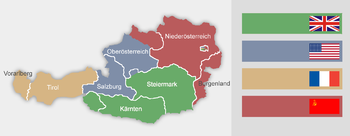



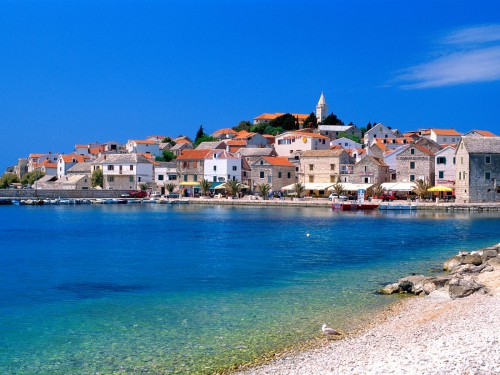

 del.icio.us
del.icio.us
 Digg
Digg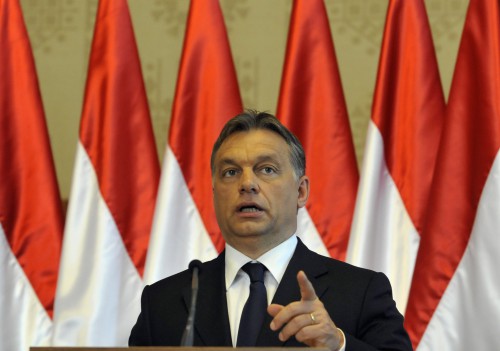
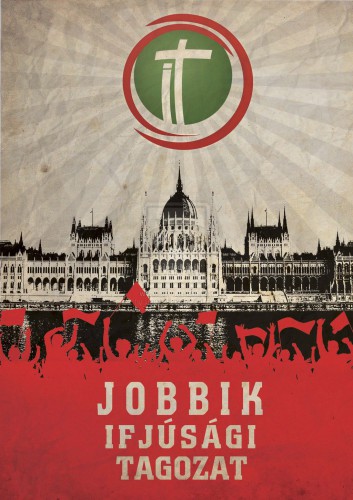
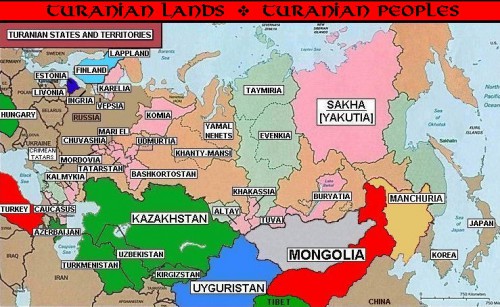
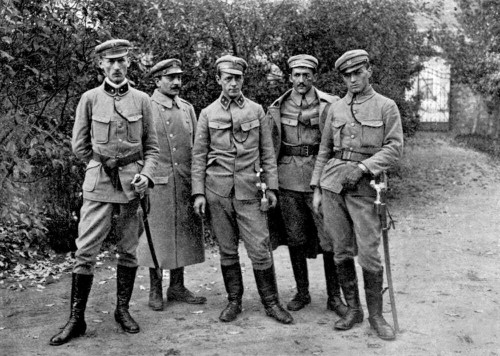
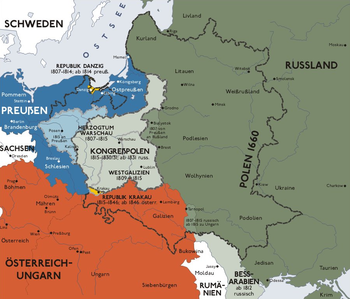

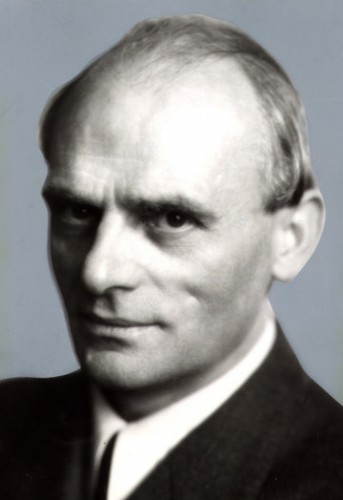




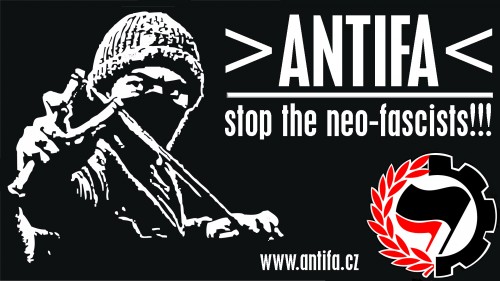
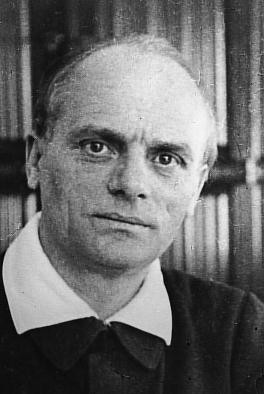 Einer wollte den Führer führen. Nein: Einige wollten den Führer führen und wirkten so im Zeichen des Führers. Ob Heidegger, Rosenberg oder Spann, die Qualität ihrer Beiträge bleibt in diesem Kontext sekundär, wenn auch im Sinne der üblichen Vorwegnahme bei Spann die Betonung auf der philosophischen Stupidität liegen kann. Ihm gelang jedoch die Formierung eines Kreises, der mehr als sechzig Jahre nach seiner eigenen Entfernung von der Universität, der heutigen WU-Wien, das Gewäsch von Ganzheit wiederholt und daneben peinlich bemüht wirkt, keinen runden Geburtstag des Meisters oder seines ersten Schülers, manchmal auch des zweiten oder folgender, zu vergessen und zumeist mit einem Presseartikel, besser mit einem Jubiläumsband zu bedenken.
Einer wollte den Führer führen. Nein: Einige wollten den Führer führen und wirkten so im Zeichen des Führers. Ob Heidegger, Rosenberg oder Spann, die Qualität ihrer Beiträge bleibt in diesem Kontext sekundär, wenn auch im Sinne der üblichen Vorwegnahme bei Spann die Betonung auf der philosophischen Stupidität liegen kann. Ihm gelang jedoch die Formierung eines Kreises, der mehr als sechzig Jahre nach seiner eigenen Entfernung von der Universität, der heutigen WU-Wien, das Gewäsch von Ganzheit wiederholt und daneben peinlich bemüht wirkt, keinen runden Geburtstag des Meisters oder seines ersten Schülers, manchmal auch des zweiten oder folgender, zu vergessen und zumeist mit einem Presseartikel, besser mit einem Jubiläumsband zu bedenken.
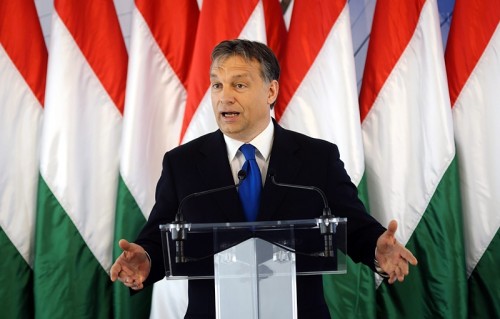
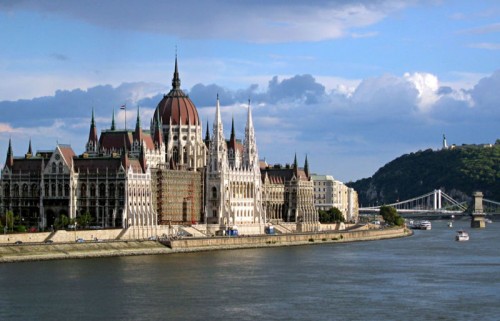
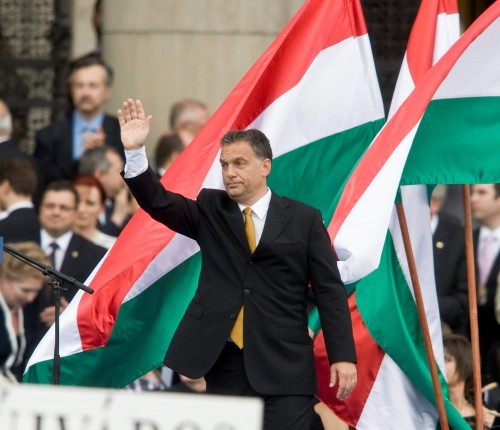
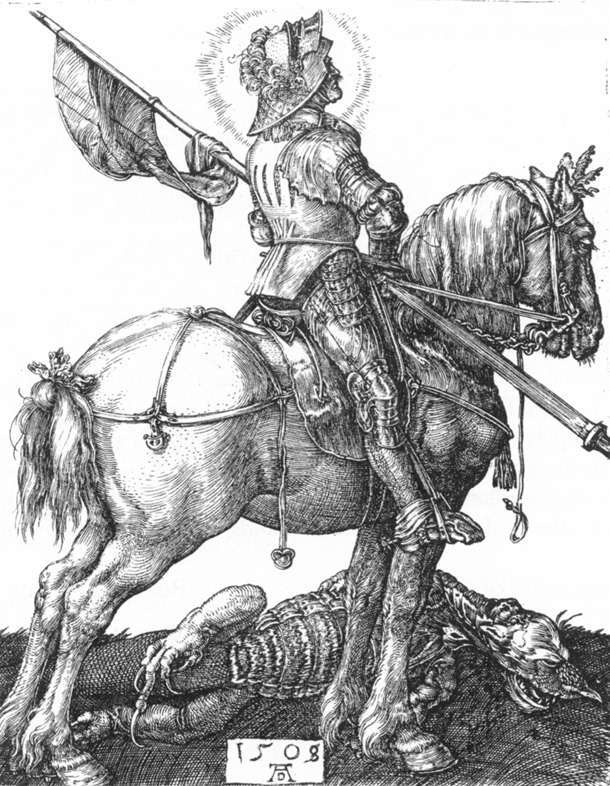
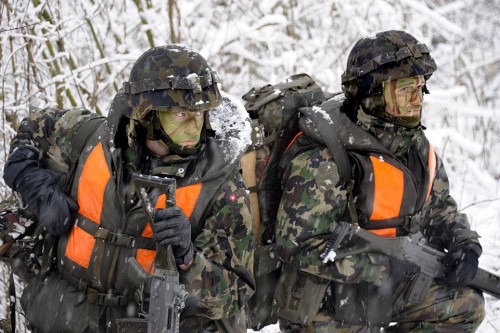
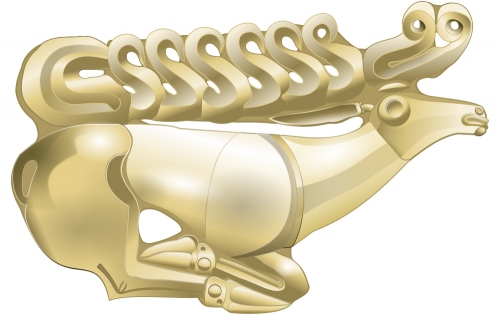
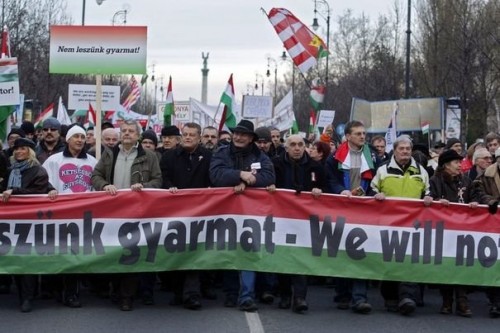
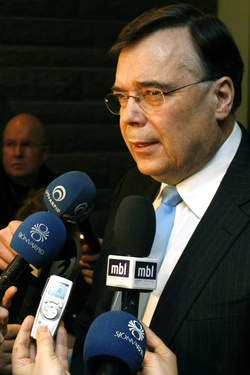 In Islanda c’è il primo caso di ex primo ministro alla sbarra con l’accusa di colpevole default: Geir Haarde (nella foto) è stato incriminato per negligenza – un evidente eufemismo per dire connivenza - nel mandato 2006-2009. Che è come dire ieri. Nessuna scusa, nessun rinvio a future storicizzazioni che fan passare tutto in cavalleria: uno degli artefici della catastrofe finanziaria della piccola isola dell’Atlantico verrà giudicato da un regolare tribunale. Del resto la legge, se non serve il popolo, che razza di legge è?
In Islanda c’è il primo caso di ex primo ministro alla sbarra con l’accusa di colpevole default: Geir Haarde (nella foto) è stato incriminato per negligenza – un evidente eufemismo per dire connivenza - nel mandato 2006-2009. Che è come dire ieri. Nessuna scusa, nessun rinvio a future storicizzazioni che fan passare tutto in cavalleria: uno degli artefici della catastrofe finanziaria della piccola isola dell’Atlantico verrà giudicato da un regolare tribunale. Del resto la legge, se non serve il popolo, che razza di legge è?